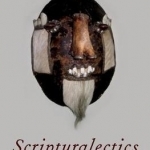Scripturalectics: The Management of Meaning
BookThis item doesn’t have any media yet
2017 | Philosophy, Psychology & Social Sciences
In this book Vincent Wimbush seeks to problematize what we call "scriptures," a word first used to refer simply to "things written," the registration of basic information. In the modern world the word came to be associated almost exclusively with the center- and power-defining "sacred" texts of "world religions." Wimbush argues that this narrowing of the valence of the term was a decisive development for western culture. His purpose is to reconsider the initially broad and politically charged use of the term: "scriptures" are excavated not merely as texts to be read but understood as discourse: as mimetic rituals and practices; as ideologically-charged orientations to and prescribed behaviors in the world; as structures of relationships and social formations; as forms of communication. Wimbush is naming and constructing a new transdisciplinary critical project, which uses the historical and modern experiences of the Black Atlantic as resources for framing, categorization, and analysis.
Using Chinua Achebe's novel Things Fall Apart as a touchstone, each chapter offers a close reading and analysis of a representative moment in the formation of the Black Atlantic, regarded as part of a history of modern human consciousness and conscientization. Such a history, he says, is reflected in the major turns in what he calls scripturalectics, part of the construction of the modern world, defined as efforts to manage or control knowledge and meaning.
Related Items:
| Published by | Oxford University Press Inc |
| Edition | Unknown |
| ISBN | 9780190664701 |
| Language | N/A |
Images And Data Courtesy Of: Oxford University Press Inc.
This content (including text, images, videos and other media) is published and used in accordance
with Fair Use.
